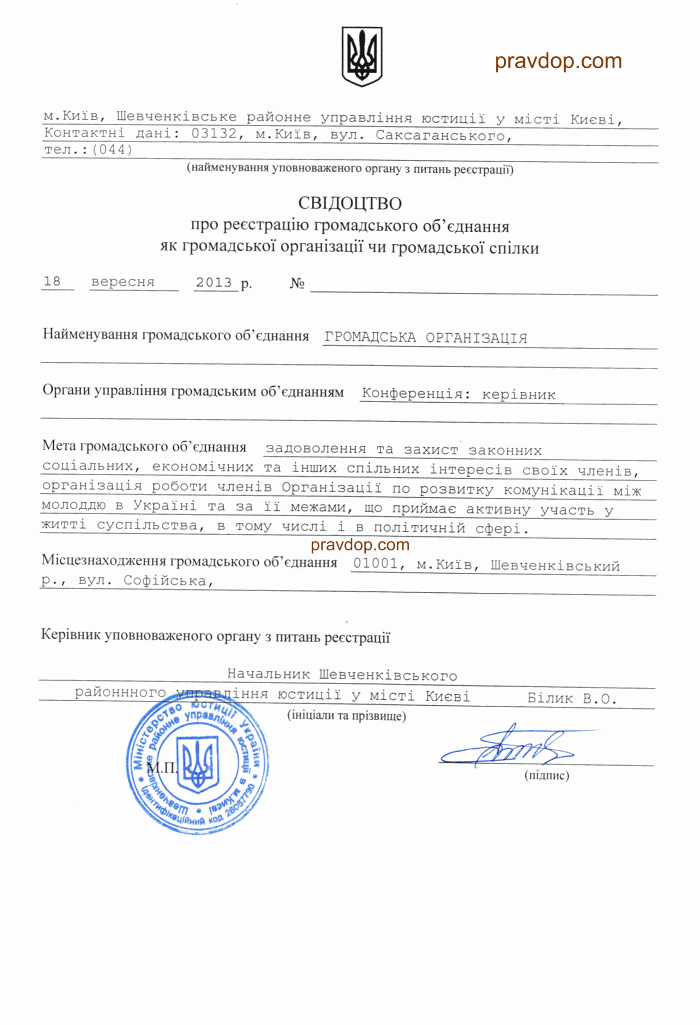Profitable activities of non-profit organizations: is it possible and under what conditions?

The right of non-profit organizations to carry out business profitable activities is established by the legislation of Ukraine. However, in practice non-governmental organizations, which record such a right and intention in their Charters, are faced with the problem of unprofitability status obtaining.
What to do in a similar situation? Can a public organization really carry out an entrepreneurial activity in Ukraine?
Interesting: Will you have any problems when registering a non-governmental organization with a famous name in the title?
Do non-governmental organizations have the right to engage in entrepreneurial activity?
Certain contradictions in the implementation of entrepreneurial activity by public associations (hereinafter referred to as the PA) are already contained in the Law “On Public Associations” itself. It is noted that a public organization with the status of a legal entity is a non-entrepreneurial company whose main purpose is not to make a profit. What constitutes associations without the status of a legal entity is not specified. But it is obvious that it does not have the goal of making a profit.
At the same time, clause 2, part 2, article 21 of the same law gives the right of the PA to carry out entrepreneurial activity, if it is specified in its charter and if it meets the purpose of the PA or helps to achieve it.
So, the PA can engage in entrepreneurial activity, if it provides for this in its charter and the requirement of the agreement with the purpose of the organization is met.
Important! Our lawyers have repeatedly drafted such statutes. In addition, we can offer you accounting and legal services on an ongoing basis, which is much cheaper than a full-time accountant and lawyer, and much safer than keeping primary records on your own.
How do entrepreneurial activities and the status of non-profitability coexist?
In practice, we have repeatedly met a situation where tax authorities refuse to grant an organization a non-profit if they see in the charter of the PA the indicated possibility to carry out entrepreneurial activity. Do they have legal grounds for this?
According to the Tax Code, an organization (enterprise, institution) acquires non-profit status if it meets all of the following criteria:
- set up in accordance with relevant law. That is, the Law of Ukraine “On Public Associations”. Therefore, it makes sense to note this in the charter of the PA;
- the charter of the association prohibits the distribution of income (profit) between its founders and management;
- the association’s charter provides for the transfer of its assets to another nonprofit organization of the same type or to the state budget if the association ceases to operate.
It is also indicated that the income (profit) of nonprofit organizations should be used only for their maintenance and implementation of goals and objectives.
As you can see, the Tax Code does not contain a ban on non-profit organizations to carry out entrepreneurial activities. The main thing is that the revenue is not distributed in the very union between "its own people".
Related article: How to set up a non-governmental organization? Most frequently asked questions concerning the existence of an NGO in Ukraine.
Unfortunately, the interpretation of legislative norms by government employees often goes against these norms.
A play on words can be somewhat misleading: "a non-profit organization", "revenue earned." After all, these things are in and of themselves incompatible. Apparently, this played an important role in the practical interpretation by tax officials of the essence of a non-profit organization.
Related article: Distinctive features of activities of charitable organization from the perspective of administrative costs arising in the process of their activities
How to engage in entrepreneurial activity so as not to have your status of non-profitability revoked?
The Law "On Public Associations" provides for the right of associations to be founders of other legal entities, including profitable ones. An established organization can carry out business activities, make a profit, and an association can receive dividends as a participant (founder). For such purposes, the best form would be a limited liability company.
If you have been denied non-profit status, revoked due to non-compliance of the provisions of the charter with current legislation, or due to non-compliance of the activities with the provisions of the charter, contact our specialists.
- We will analyze your situation, including constituent documents and accounting entries;
- we will select the optimal algorithm of actions, if necessary - we will make and register a new edition of the organization's charter;
- if a decision is made that best suits your needs, we will develop the constituent documents and register a limited liability company;
- we will take on full accounting and legal support.
If you have faced a situation of the reversal of the status of non-profitability or the need to carry out profitable activities by a public organization, please get in touch with our specialists!
Our clients













